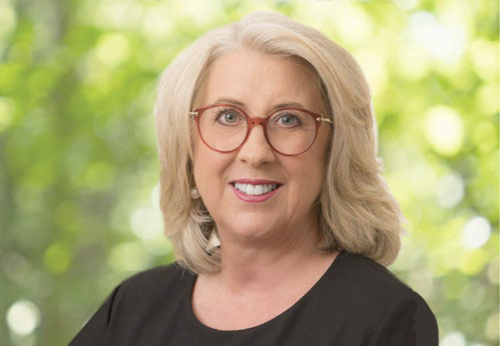Some divorces are ugly – both parties will “lawyer up” quickly, choosing lawyers known for achieving certain results. These divorces usually involve allegations of adultery, contentious custody battles, or high dollar property settlements. When there is a lot at stake, the claws come out.
Other divorces are more amicable. Sometimes couples simply fall out of love, recognize that it is time to move on, and can reach an agreement fairly easily regarding their divorce related issues.
Most divorces fall somewhere in between these two extremes.
For couples that lean more towards the second scenario, collaborative divorce might be something to consider.
What is Collaborative Divorce?
Collaborative law utilizes a non-adversarial approach to settling differences and resolving disputes. The parties, lawyers, and other professionals involved in the process all enter into a formal agreement to focus on reaching a settlement without resorting to litigation.
In collaborative law, if successful, parties can expect to never see the inside of a courtroom. All negotiations and exchange of information will take place in meetings where both parties, as well as their lawyers, are in attendance.
Different from Traditional Divorce
One core value of collaborative law is to allow the parties to feel as though they are a part of the process. For many who chose traditional lawyer-based negotiations, they feel disenfranchised, like the lawyers are in control and they are simply along for the ride. Collaborative law aims to help the parties feel as though they are actually involved in working through the problems and reaching a solution.
Another core value of collaborative law is to achieve a solution that allows the parties to have a productive post-separation relationship. Simply by opting for the collaborative law process over traditional divorce proceedings, the nature of the negotiations changes dramatically. Parties tend to be more amicable, and they agree to avoid “game playing” like withholding child support or spousal support.
What is in a collaborative contract?
If you opt to resolve your issues through collaborative law, you will need to sign a collaborative contract. Most importantly, the contract will rule out immediate litigation through the “disqualification clause.” This clause expressly prohibits a party from commencing litigation during the collaborative process, and it also prohibits a party from threatening such.
Another aspect of the disqualification clause is that it bans the lawyers involved in the collaborative process from being involved in any subsequent litigation should the collaborative process fail. If the parties are unable to reach a settlement and ultimately do litigate their issues, they must retain new counsel.
Beyond the disqualification clause, the contract will set forth other rules and consequences. For instance the contract will require both parties to give full and honest disclosure of all relevant information and will outline what is to take place in the event of a breach. A contract also may request parties act in good faith, focus on the well-being of themselves and their children, and also require the parties to contribute to developing mutually beneficial options.
The Process: 4-Way Meetings
In collaborative law, parties negotiate and discuss settlement options in a neutral setting through a series of face-to-face discussions. This is a stark contrast from traditional lawyer-based negotiations where the parties have limited contact and rarely see each other. In a traditional mediation, the parties might never even lay eyes on each other throughout the whole mediation. In collaborative law, however, they parties will be face-to-face.
These meetings are called “4-way” meetings because both parties are present, as well as their respective lawyers. These meetings are characterized by direct communication amongst the lawyers and the parties – this is not a situation where a lawyer will speak on behalf of the client. All four people are actively engaged in open dialogue about the issues to be resolved.
While the lawyers will undoubtedly meet with the parties in advance and prepare for the meeting, the majority of the work necessary to resolve the dispute takes place at the meeting and requires direct input by the parties.
Other professionals may also be involved in the 4-way meeting. It is not uncommon for a psychologist, child specialist, financial expert or other professional to be involved. These meetings are tailored to reflect the needs of the parties and will involve professionals whose opinion can have an impact on achieving the best possible solution.
The Approach: Interest-Based Negotiations
Even the way the parties negotiate at a 4-way meeting is different than in traditional lawyer-based negotiations. Collaborative law places an emphasis on something called “interest-based negotiations.” This refers to the concept that the parties are to focus on their needs and interests rather than their positions and grievances.
Rather than approach the 4-way meeting with a mindset to discuss what has happened in the past, the focus is more on the future. This helps the parties to look past incidental or ancillary problems and it encourages realistic expectations.
Interest-based negotiations also encourage creative solutions. If parties were to litigate custody issues a judge would come up with a very black and white custody schedule. If you settle custody issues through collaborative law, the possibilities are endless. You can work out a schedule that is atypical and meets your needs better.
Is Collaborative Law For Me?
If you are the type of person who says “we are only going to hire lawyers if we can’t work it out and it gets really ugly” then the collaborative route is probably for you. If you tend to have a more amicable relationship with your former spouse, collaborative law could work for you.
It’s hard to say right away whether it will work for any given couple, but if you aren’t dealing with a particularly ugly divorce characterized by emotional issues, contentious custody battles, or major disagreements over divorce related issues then you could be a prime candidate for collaborative law.











